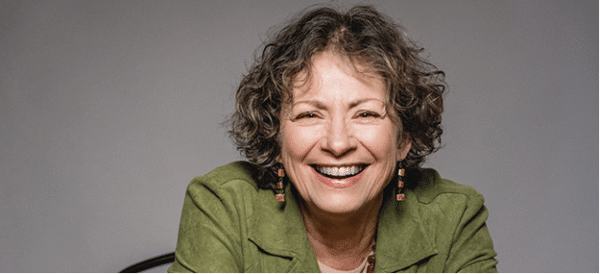A Companion To The End

By Robert Lerose
Published January 5, 2022 By The Rutgers University Alumni Association
Linda Bryce was an 18-year-old volunteer at a hospital in New Brunswick, New Jersey, when she was given a list of patients to spend time with—but no specifics about them. When she arrived at the bedside of one older gentleman, his first words to her were, “You know, I am dying.”
Shaken and unprepared, Bryce DC’72, NLAW’75 hurried through the visit and stopped volunteering for this duty. At the time, she admits, she could not look death in the face. Today, though, she is a certified end-of-life doula who embraces guiding the journeys of those on the threshold.
A higher calling
Bryce’s life journey has taken her through some pivotal episodes in history. The civil rights movement and other cultural upheavals of the early 1970s stirred something in Bryce while she attended Douglass College. She enrolled in the School of Law in Newark because of its strong social justice commitment and focused on health law. After graduating, Bryce enlisted with VISTA—Volunteers in Service to America, conceived by President John F. Kennedy and now known as AmeriCorps—and worked for 20 years throughout Indiana, representing migrant farmworkers, bringing legal services to rural areas, and giving legal education workshops for laypeople.
While the work was rewarding, she began to feel a spiritual calling. “I wondered if I was being pulled to work in a more specifically religious place or job,” Bryce says. She started working with the Indiana Catholic Conference, writing position papers on health issues and dropping in at nursing homes with her young daughter in tow, asking to visit anybody who was alone.
After she and her husband moved back to the East Coast in the late 1990s, she pursued a master’s degree in Jewish-Christian studies at Seton Hall University, and they eventually moved to Pennsylvania, where their daughter attended college. Bryce began teaching courses on the Holocaust at Penn State and realized it was also an opportunity to explore death, dying, and grief. Her early experience with the dying patient “had to have influenced me on some level, either to begin a particular journey or to awaken in me a remembrance of a journey I decided to take in this life,” she says.
Then in 2015, Bryce found herself once again spending time with a terminally ill patient: her husband. While at his bedside during the last days of his life, she began to sing to him. She had long sung in choral groups, so singing to him felt natural. But she was “unfamiliar with doulaing or that it was a ‘thing,’” she says.
Following the death of her favorite aunt a few months later, Bryce saw an ad for and joined the local chapter of Threshold Choir International, an organization of volunteers who sing at the bedsides of the dying, and she began studying up on the death doula movement.
Being there
Death doulas provide a range of nonmedical services, such as sitting vigil with the dying, helping them write letters to their survivors, and supporting their emotional and spiritual needs. The International End of Life Doula Association provides training and certification (which requires direct work with dying individuals), but Bryce believes that official instruction isn’t necessary. In her book The Courage to Care: Being Fully Present with the Dying (Capucia Publishing, 2021), she shares her experiences of helping others make the journey from illness through decline and finally to death. “You need to be willing to lean into suffering, to be there with someone—not try to fix anything and not judge, but to be a companion on the road,” she says.
For example, staying in touch with a phone call or a visit lets the person know that they are valued. Reflecting on what the other person is losing can offer new perspectives, Bryce says. “You’re more than just this ill or dying person in front of me. You have a life. You had a life. You had accomplishments. You were part of my life, so why not continue being present to each other?”
Just as we plan things like vacations, Bryce encourages people to plan for what she calls “a good death”—that is, a death that affirms our values, beliefs, and what matters most to us. Such planning can allow us to pass along life lessons or address unfinished business.
“Dying is just a part of life, from first breath to last breath,” Bryce says. “Death is not to be scared of. I use the word scared because when you flip those two letters, you get the word sacred. Seeing the sacredness highlights the preciousness of life.”
